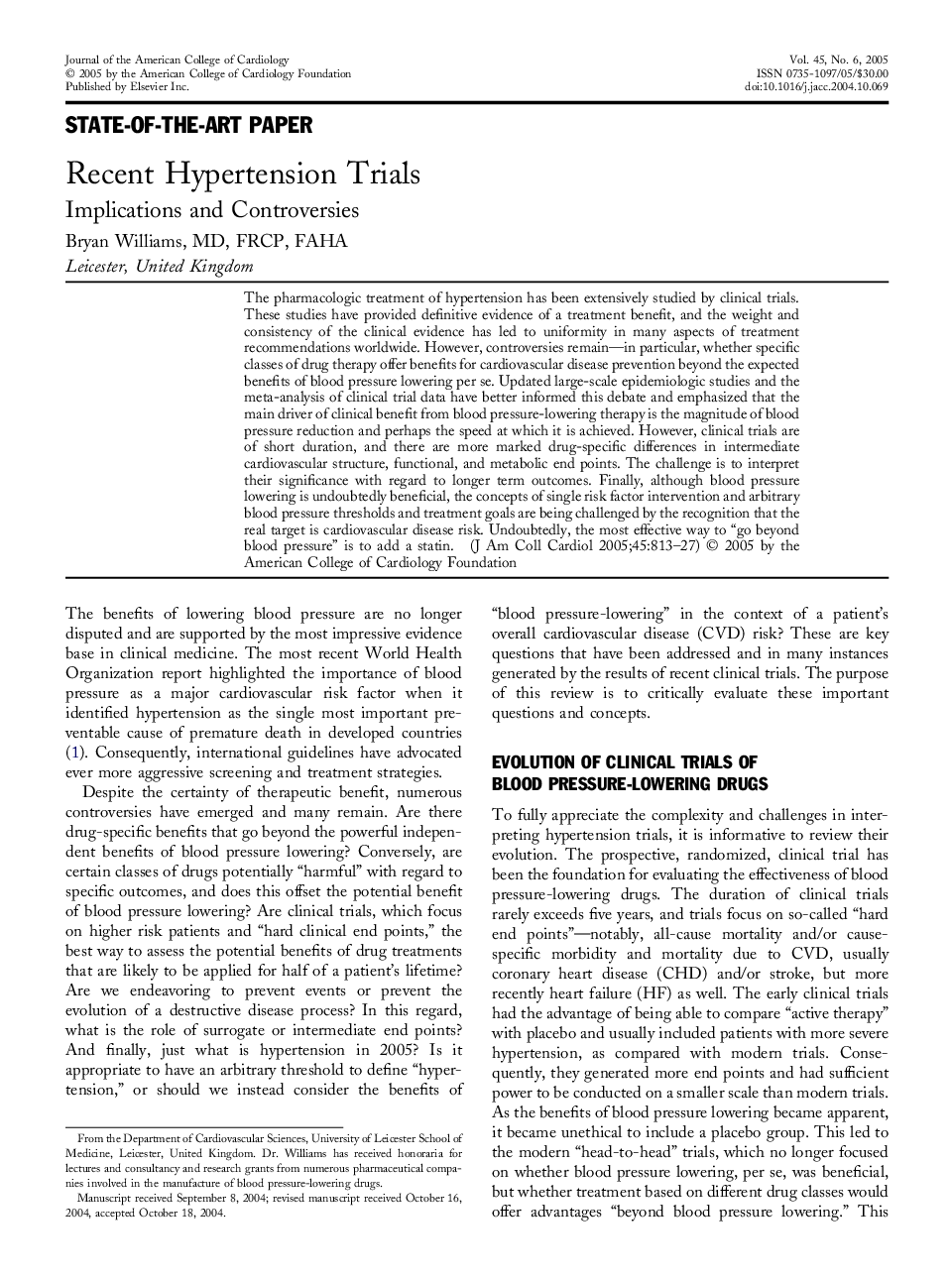| Article ID | Journal | Published Year | Pages | File Type |
|---|---|---|---|---|
| 9960837 | Journal of the American College of Cardiology | 2005 | 15 Pages |
Abstract
The pharmacologic treatment of hypertension has been extensively studied by clinical trials. These studies have provided definitive evidence of a treatment benefit, and the weight and consistency of the clinical evidence has led to uniformity in many aspects of treatment recommendations worldwide. However, controversies remain-in particular, whether specific classes of drug therapy offer benefits for cardiovascular disease prevention beyond the expected benefits of blood pressure lowering per se. Updated large-scale epidemiologic studies and the meta-analysis of clinical trial data have better informed this debate and emphasized that the main driver of clinical benefit from blood pressure-lowering therapy is the magnitude of blood pressure reduction and perhaps the speed at which it is achieved. However, clinical trials are of short duration, and there are more marked drug-specific differences in intermediate cardiovascular structure, functional, and metabolic end points. The challenge is to interpret their significance with regard to longer term outcomes. Finally, although blood pressure lowering is undoubtedly beneficial, the concepts of single risk factor intervention and arbitrary blood pressure thresholds and treatment goals are being challenged by the recognition that the real target is cardiovascular disease risk. Undoubtedly, the most effective way to “go beyond blood pressure” is to add a statin.
Keywords
Related Topics
Health Sciences
Medicine and Dentistry
Cardiology and Cardiovascular Medicine
Authors
Bryan MD, FRCP, FAHA,
